Ducks are well-known for their hardiness and ability to thrive in various environments. These birds are adapted to a wide range of temperatures and can be found on every continent except Antarctica.
However, how long do ducks live in the wild?
The lifespan of ducks in the wild can greatly vary depending on the species, environmental conditions, and predation risks. On average, wild ducks can live anywhere from 3 to 20 years.
Mallards, one of the most common and widespread species, typically live 5 to 10 years in the wild if they can survive their first year, which is the most challenging due to predation and other factors. However, some ducks have been known to live beyond 20 years in optimal conditions.
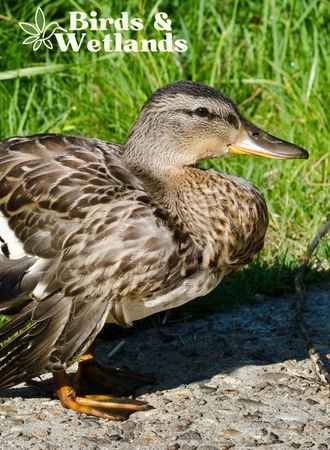
In contrast, ducks in captivity, such as those found in zoos and aviaries, have significantly longer lifespans. These birds are protected from many of the threats that ducks in the wild must contend with, and they receive regular medical care and a consistent supply of food and water. As a result, ducks in captivity can live for 10 to 20 years or more.
Key Takeaways on Duck Lifespan
- It is difficult to generalize the lifespan of a duck in the wild, as many variables can impact a duck’s survival.
- Duck longevity is affected by factors such as food availability, predation and diseases.
- Domesticated ducks live longer than wild ducks.
How long do ducks usually live?
Although there are accounts of wild ducks living up to 30 years. Most ducks living in the wild have a high mortality rate, with many not surviving until their first birthday. The survival rate of baby mallard ducks is just 20%, while the survival rate of baby mergansers is even lower at around 10%.
Duck infant mortality is high due to various factors, including predation, disease, and poor environmental conditions. And unlike most birds, duck eggs don’t hatch at the same time.
Ducks have a high reproductive rate, with the vast majority of females often laying multiple eggs in a single breeding season. This helps to compensate for the high infant mortality rate. After they lay eggs, they will protect and incubate until the eggs hatch.
Duck broods are larger than many other species due to the high infant mortality rate. By producing more offspring, ducks increase the chances that at least some of their young will survive into adulthood. This reproductive strategy, known as r-selection, is common in species with high mortality rates and uncertain environments.
| Duck Species | Average Lifespan |
|---|---|
| Mallard | 5-10 years |
| Pekin | 9-12 years |
| Muscovy | 7-12 years |
| Khaki Campbell | 8-12 years |
| Indian Runner | 8-12 years |
| Rouen | 5-9 years |
| Wood Duck | 4-8 years |
| American Black Duck | 5-10 years |
| Mandarin Duck | 6-10 years |
| White-Faced Whistling Duck | 10-15 years |
What do baby ducks die from?
How long a baby duck lives depend on a lot of factors. The leading causes of baby duck mortality include predation, extreme weather conditions, food scarcity, and diseases.
Predation by snapping turtles, owls and other birds of prey is the leading cause of wild baby duck mortality. Ducks have a variety of natural predators, including birds of prey such as hawks and eagles, as well as mammals such as foxes and raccoons. These predators can easily kill and consume small ducklings.
Extreme weather conditions, such as harsh winters or hot summers, can also cause wild baby duck mortality. Extreme temperatures can make it difficult for ducks to find food and make them more susceptible to diseases.
Food scarcity can also cause wild young ducklings to die, as they may be unable to find sufficient food to sustain themselves. Ducks require a varied diet of insects, small fish, and other small aquatic animals to survive. If these food sources are scarce, young ducks may starve.
Finally, diseases and parasites can also kill wild baby ducks. Ducks can be affected by various conditions, such as avian influenza, salmonella, duck viral hepatitis (DVH) and duck viral enteritis (DVE).
Moreover, parasitism also causes death in many young birds. These vulnerable birds can become hosts to lice and mites. These parasites can weaken the duck’s immune system and make them more vulnerable to other threats.
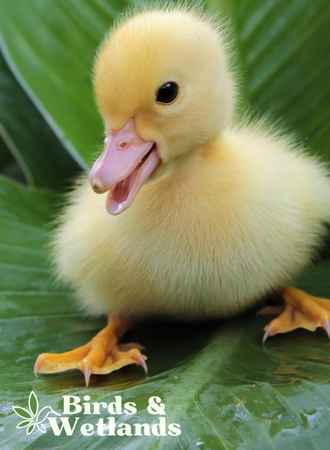
Do male ducks live longer than females in the wild?
It is difficult to determine if males generally live longer than females in the wild, as many factors can influence a duck’s lifespan. Various factors, including genetics, diet, and environmental conditions, can affect a duck’s life
In general, adult ducks that are well-fed and live in a safe and healthy environment may live longer than other ducks that do not.
It is worth noting that males (also known as drakes) may face different survival challenges than female ducks (also known as hens).
For example, males may be more likely to engage in territorial behavior, exposing them to an increased risk of injury or predation.
On the other hand, females may face additional challenges related to egg production and caring for young.
What is the longest-living duck?
The oldest duck ever recoreded in the Guinness Book of World Records is a mallard drake who lives until 26.
How long do ducks live in captivity?
Raising ducks in your backyard can be a rewarding experience. They may not be as affectionate as domestic cats or dogs, ducks make for exceptional pets. As a potential duck owner, you may be wondering — how long do these ducks live?
Domesticated ducks are breeds of ducks raised by humans for various purposes, including egg production, meat, and as pets. And if duck owners let ducks roam free, they will seek out weeds, fresh grass and insects. These ducks are often raised in farms or backyard settings.
The lifespan of a domestic duck is generally longer than a wild duck’s. While wild ducks may not survive to reach their first birthday due to various factors, including predation and environmental conditions, domesticated ducks can live for several years with proper care.
One reason a domesticated duck breed may live longer than wild ducks is the lack of predation. In a domestic setting, ducks are often protected from natural predators, which can help them to survive to a ripe old age.
Proper care and readily available food can also help domestic ducks to live longer. These domestic duck breeds require a balanced diet of grains, vegetables, and high-quality duck feed to maintain their health.
Ducks should have access to clean water and a safe and secure place to live. Backyard ducks can live long and healthy life by providing these necessities.
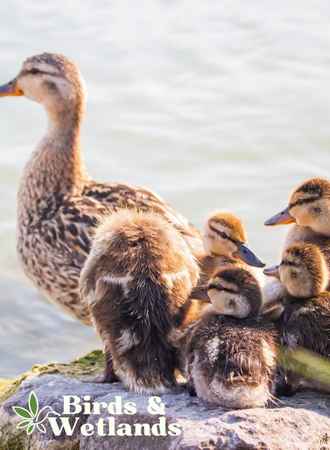
Can pet ducks survive in the wild?
Pekin ducks and other duck breeds often lack the survival instincts necessary to thrive in the wild. Unlike wild ducks, born with the skills and knowledge required to find food and avoid predators, domesticated ducks have been raised by humans and may not have these skills. As a result, they may be more vulnerable to threats such as predators and harsh environmental conditions.
Pet ducks also rely on humans for food and shelter. If a pet duck is released into the wild, it might be unable to find sufficient food and shelter to sustain itself.
Wild ducks are adapted to finding food and shelter in their natural habitat, but domesticated ducks may have different abilities.
Pet ducks may be physically ill-equipped to survive in the wild. Most domesticated ducks are heavier and have shorter wings than their wild counterparts, making it difficult for them to fly and evade predators.
A wild duck can take off quickly and fly to safety, but pet ducks may not be able to, making them more vulnerable to predation.
How long do mallard ducks live?
Wild mallards live 5 to 12 years in the wild but potentially longer in captivity.
How long do Pekin ducks live?
Pekin ducks, also known as white ducks, have an average lifespan of 5-10 years in the wild. In captivity, where it is protected from predators and has access to proper care and nutrition, the Pekin duck may live longer, up to 12-15 years. Many duck owners even reported that their Pekin ducks longer life spans than 15 years.
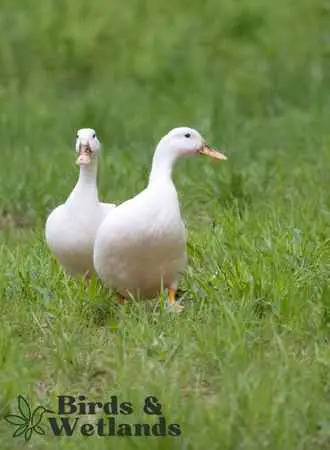
How long do Cayuga ducks live?
Cayuga ducks are a breed of domesticated ducks native to the United States. They are known for their glossy, black feathers and calm temperament and are often kept as pets or for egg production.
Cayuga ducks have an average lifespan of 8 to 12 years. However, the specific lifespan of an individual duck will depend on various factors such as its living conditions, diet, and overall health.
How long do Khaki Campbell Ducks live?
Khaki Campbell ducks are a breed of domesticated ducks that are known for their egg-laying abilities. They have an average lifespan of 10 to 15 years.
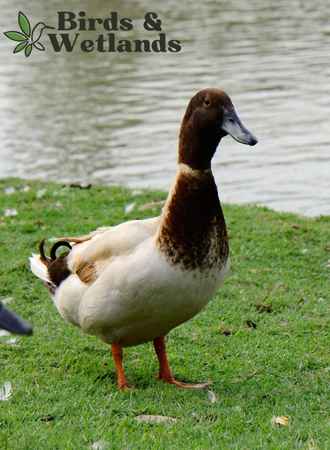
How long do Muscovy ducks live?
The average life expectancy of a Muscovy duck is up to 20 years, but can be shorted due to factors such as injuries, disease and predation.
How long do Indian runner ducks live?
Indian runner ducks live up to 10 years.

